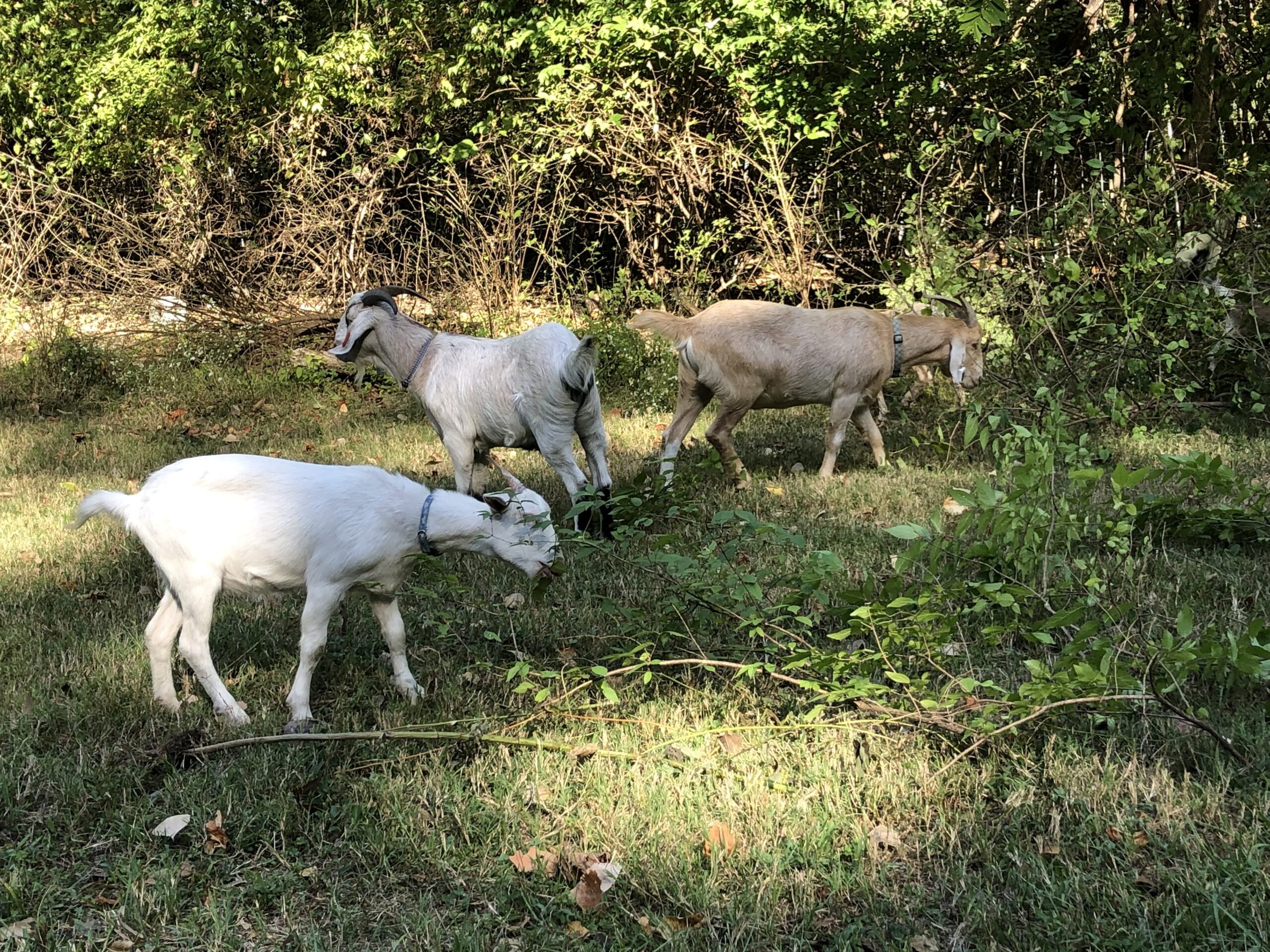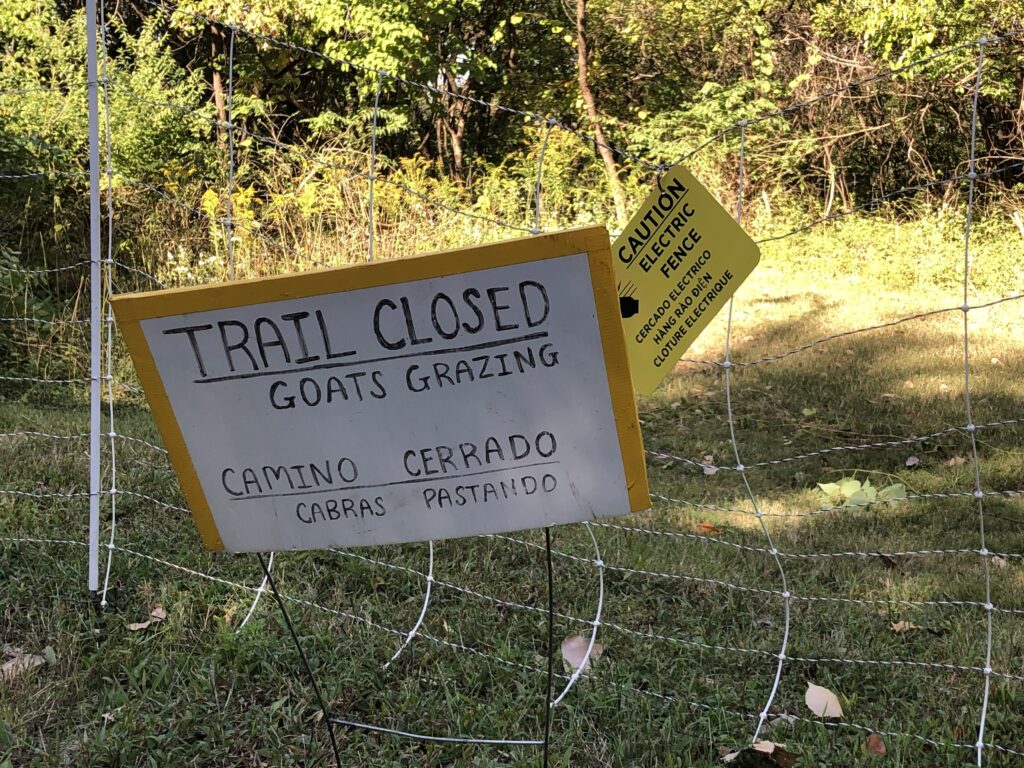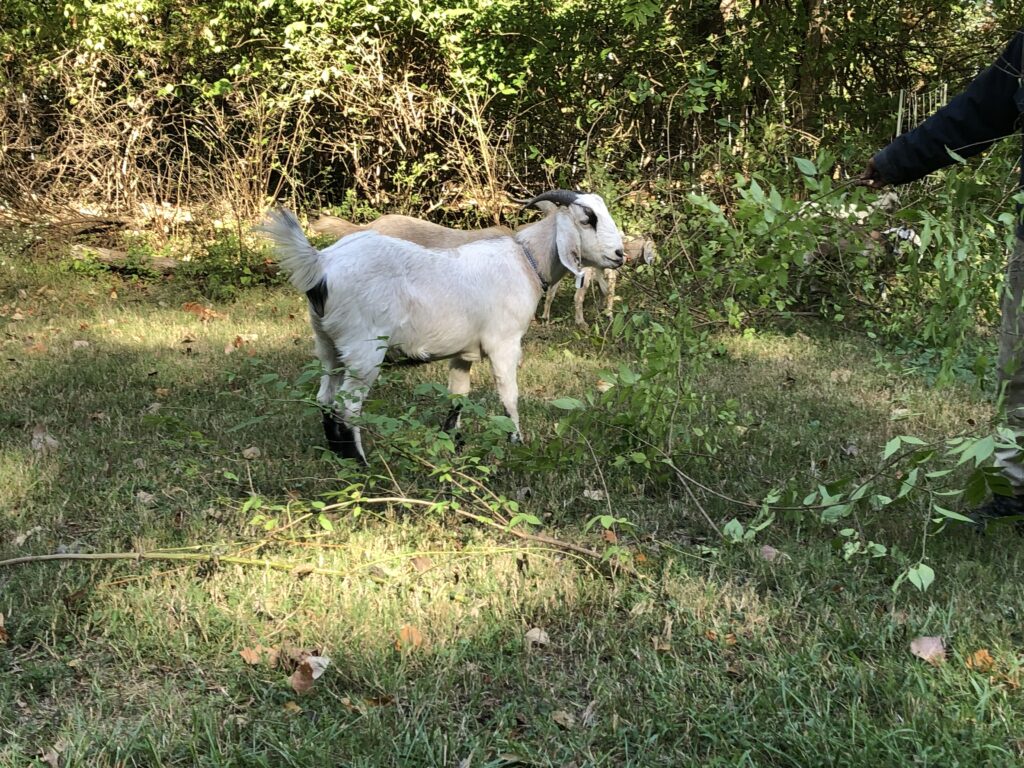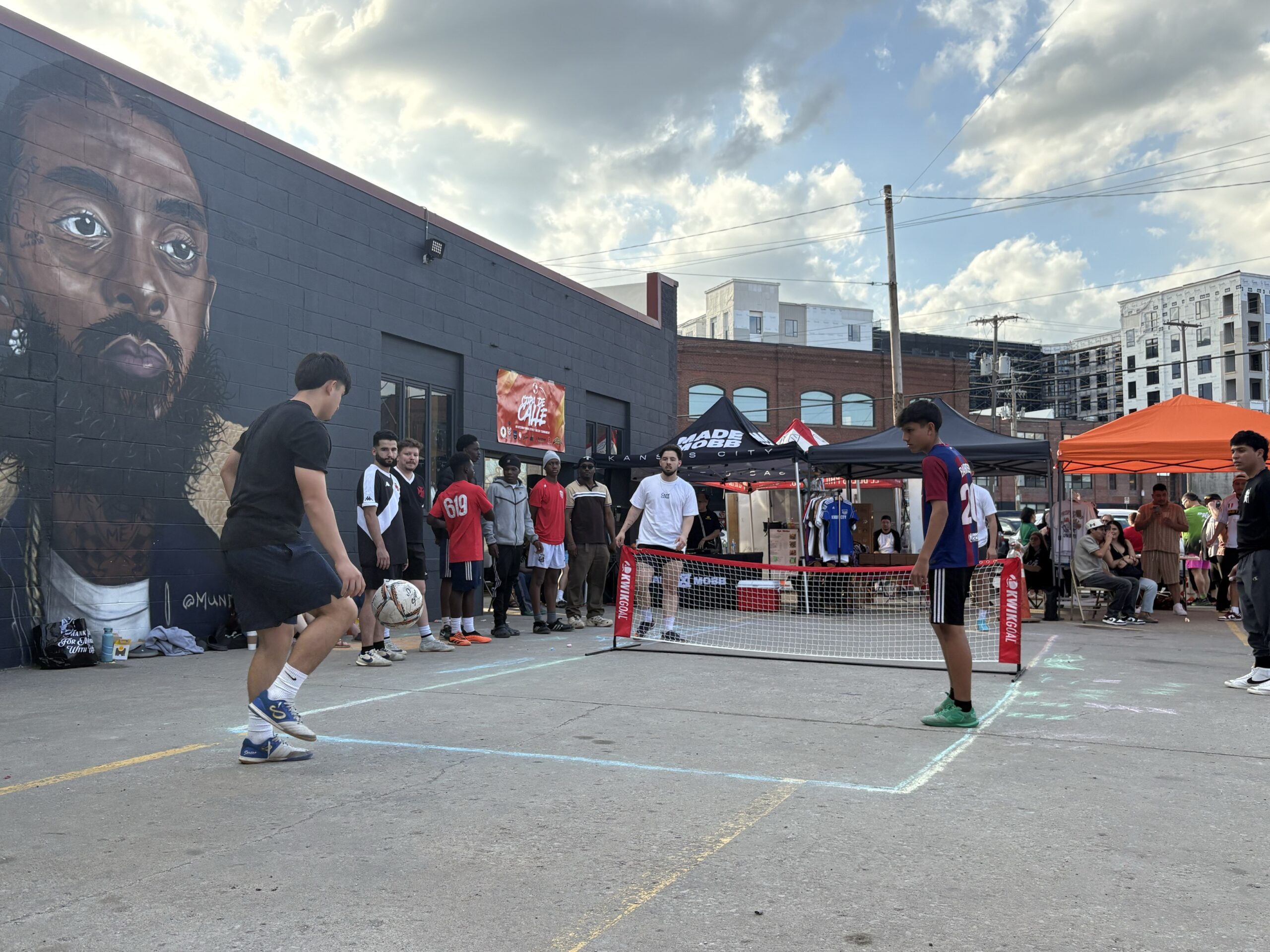
Dorri Partain
Managing Editor
Since a small herd of goats was introduced last summer to help eradicate invasive plant species along Cliff Drive, they have chomped and chewed inside designated areas around the drive’s Gate 1 and 2 entrances.
For any animal lover, this sight of goats doing what goats do is charming — but for those walking by, there are reminders these goats remain hard at work — and this is not a petting zoo. Electrified fencing keeps these goats confined to their designated work area and acts as a deterrent to anyone planning to harm them.
Jerusalem Farm — a Catholic intentional community located within the Pendleton Heights neighborhood — procured six goats and their trailer and continues to care for them in a program designed to better the natural habitat along the Drive by reducing invasive species, which chokes out the growth of native plant species.
Along with invasive honeysuckle, the goats tackle leaves and berries of wintercreeper and wild grapevine. The fencing is adjusted weekly to continue giving these goats a sufficient grazing area, while still allowing for total consumption.

Checking the progress and overseeing the care of the herd involves arriving early in the morning to release them from their night time shelter — a trailer outfitted just for their needs — and locking them in for the night. Tommy Mitchell joined the Jerusalem Farm community last December and assisted Mary O’Connell — the park steward who set up this program last summer — before taking over care of the herd while O’Connell is on sabbatical.
Mitchell is assisted by Sidney Shelby — who also brings in teams of volunteers to cut back invasives in the areas the goats have chewed to be sure nothing has a chance to grow back. Each checks the area when the fence is adjusted to make sure the goats are eating the right species and not something that will make them ill, such as pokeberry.
In the first year of this program, the herd has cleared three acres — enabling volunteers to come into those areas and replant native species.
The six original goats in this herd were acquired and named though a GoFundMe campaign, playfully referred to as GoatFundMe. For a $500 donation, the donor could select and name a goat. The two females were named Ronnie and Serenity, while the males were named Nomad, Lony Cera (the genus name for honeysuckle), Roman Lasso and Jordan Scheile, for the founder of Jerusalem Farm.

Sadly, Ronnie turned up missing earlier this year and is believed to have been stolen. Ethyl — a replacement for Ronnie — was attacked by a dog that was able to jump the electric fence, was severely injured, and had to be put down.
Six new goats have recently joined the herd and are awaiting their names through the second round of GoatFundMe. In addition to naming rights, donations help provide food and fresh bedding for the herd.
Mitchell and Shelby enjoy their time checking in with the herd and note that each goat has a distinct personality. Lony and Nomad “act like big guys” according to Mitchell, while Serenity is mean to the younger, smaller goats. Jordan is really shy and won’t eat from anyone’s hand, while Roman is the “oddball” of the group, Mitchell said.
For those interested in donating to name the goat herd’s new additions, visit www.gofundme.com/f/donate-for-goat-locals-new-herd-needs



















